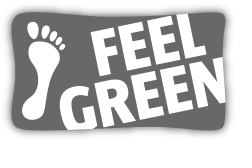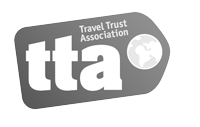
Get yourself a travel insurance plan before traveling
Your destinations must be covered
Global travel is cool, but some hot destinations also may be considered risky, so be aware that your destination may not be covered if it is considered to be risky by your country's embassy. Also, travel insurance plans are often set to cover different regions. Make sure all your locations are covered, especially when you plan to travel to multiple countries of a region or choose an annual policy because sometimes you'll find that Turkey is included in Europe policies and Indonesia in Pacific ones, and the US and Caribbean are not automatically included in worldwide policies. Note: According to local laws, all travelers (foreigners and Vietnamese) in Vietnam are required to purchase travel insurance, or your tour operator will be fined USD 1,730-2,160 per group by Vietnamese Tourism Departments. Therefore, make sure you have travel insurance and take it with you for checking when you travel to Vietnam.
Get basic coverage
In general, travel insurance covers five basic situations: trip cancellation, medical expenses, emergency evacuations, baggage loss or flight delays, and 24/7 assistance.
Trip cancellation coverage: Trip cancellation must be your top concern when you have already invested in your flight tickets, cruise fare, hotel rooms, and tour packages. If these expenses are nonrefundable, you may suffer a big loss if you have to cancel your trip. Trip cancellation coverage reimburses you for your pre-paid nonrefundable money for the reasons of hurricanes and severe weather, terrorism, strikes, etc. It also includes trip interruption coverage which reimburses your unused trip expenses if you need to go back home early; some even cover reasonable additional accommodation and transportation costs incurred.
Medical Emergency coverage: Usually, your domestic medical insurance won't cover you if you get sick or injured during your vacation overseas. Medical emergency coverage reimburses you for accidents and emergency medical treatment during your trip, such as physician services, ambulance services, and hospital charges, etc.
Emergency evacuation coverage: Emergency evacuation coverage pays for medical emergency evacuation expenses and non-medical evacuation expenses. It can transfer you to a hospital of your choice and airlift you to return back home if it's necessary. All these are very expensive and the evacuation costs can easily reach to 50,000 dollars or more. It also covers transportation expenses if there is civil, political unrest or a natural disaster in the country which you are visiting.
Loss or delays coverage: You may get a partial refund for loss, theft or damage of your baggage, and it reimburses your expenses on buying clothes and essential items if your baggage is delayed for more than 12 hours. Travel insurance also will pay for your additional costs due to flight delays and missed connections, like an extra night in the hotel or a meal.
24/7 travel assistance service: Responsive, convenient and round the clock services are very important for someone who is in an emergency situation and badly in need of help, especially when you need medical service. 24/7 support can help to arrange medical transportation, locate nearest hospitals, overcome language problems and organize transportation home.
Other extra coverage you may need:
Life insurance coverage for an accidental injury or death.
Hazardous sports coverage for injury caused by adventure sports, such as bungee jumping, diving, mountain biking, etc.
Rental car collision coverage is a must if you like to have self-driving trips. It reimburses the expenses as a result of an accident or collision.
Annual or single policy?
If you plan to travel more than twice next year, get yourself an annual or multiple policy. If you just want a short trip occasionally, a single policy has better value. Check the maximum number of days covered for your every trip - most annual or single policies cover up to 90, 120, even 180 days, and some to as low as 21 days.
Who is going with you?
Individual policy is suitable if you travel alone.
Couple policy is likely your best bet if you live at the same address as your partner.
Family policy is best for a family tour, which covers two adults and up to four children. It's much cheaper than buying an individual policy for each traveler.
Couple and child policy is often cheaper than a family policy if you only have one child.
Things to know before purchasing travel insurance
1. Know what your travel insurance doesn't cover
Knowing what your travel insurance doesn't cover is just as important as knowing what it does cover.
Usually, travel insurance doesn't cover any loss due to pre-existing medical conditions. For example, if you are diagnosed with pneumonia during a so-called "look-back period" that is usually 60, 90, or 180 days prior to the effective date, then your expenses related to pneumonia will not be covered unless you buy a specific policy to add that.
Apart from that, if you are pregnant and give birth when traveling, your travel insurance may cover complications associated with pregnancy or childbirth, but not extend to childbirth expenses.
2. How much coverage can you get?
It's best to choose a plan with more than 100,000 dollars coverage since many cheaper travel insurance can't provide much protection and just the ambulance service may easily cost more than your coverage.
3. Is there any age limit?
Some insurers have an age limit. You may be charged more if you are over 65 years old so you may need to do more research to find a cost-effective specialist plan.
4. Can you buy travel insurance after departure?
It's recommended you get your travel insurance before or near the time you pay for your tour package. Don't wait too long, or the insurers may not cover you. You can buy travel insurance when getting to your destination, but you may not have many good choices. As a reliable tour operator specialized in customized private tours, Odynovo suggests you travel with your insurance, especially when you travel to Vietnam. No matter which travel insurance plan you choose, we highly recommend having a paper or digital copy of your insurance information, medical record and emergency numbers handy






